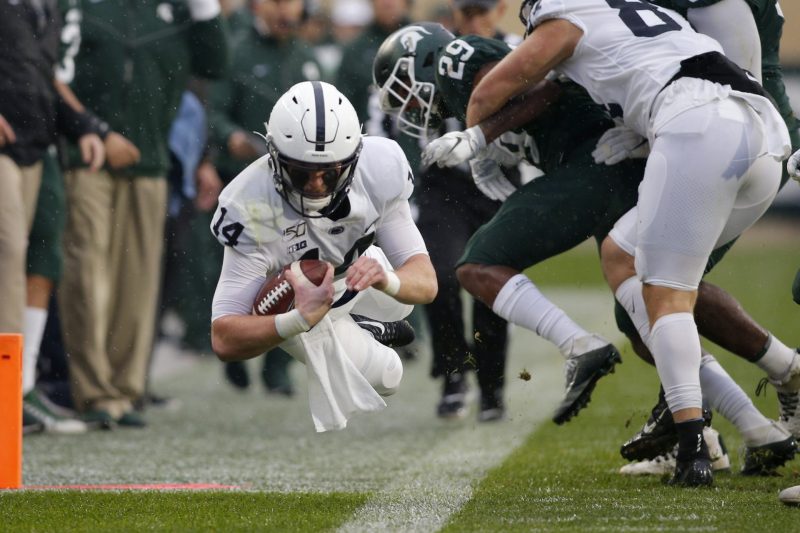Russ Walker/PA Post
Wednesday is a big day for college sports. At some point today, the Ivy League is expected to reveal its plans for the fall 2020 football season. There’s a very good chance that the league will shift its season to the spring, believing the risks of coronavirus are too large to start playing in September like its member schools normally would.
The Ivy League is hardly a powerhouse football conference (and hasn’t been for half a century or longer). But its decision could set off a chain reaction, CBS Sports’s Ben Kercheval notes: “[W]hat happens with the Ivy League could set the tone for the rest of college football. After all, it was the Ivy League that initially canceled its basketball conference tournament back on March 12. After initial blowback for supposedly overreacting, other conferences quickly followed suit once the gravity of the COVID-19 outbreak became clear.”
But even if the Ivy League cancels fall sports, it doesn’t guarantee the rest of the nation’s colleges and universities will follow suit. “Is it definitely going to impact what we do? As a whole, not necessarily,” said Shane Lyons, chair of the NCAA Division I Football Oversight Committee . “We have to look at what we’re doing with testing and protocols and the safety and well-being of our student-athletes, making sure we’re doing the right thing from that aspect of it, to see if we can fill any type of season.”
Smaller college conferences aren’t waiting to make a decision. Close to home for many Pennsylvanians is the decision by the Centennial Conference to cancel fall sports. The conference includes Bryn Mawr, Dickinson, Gettysburg, Haverford, Franklin & Marshall, Swarthmore, Ursinus and Muhlenberg.
A fall without football would be devastating for many college towns. But even if games are played, stadiums may not hold many fans. “I have heard, so far, of no university that intends to have a full stadium coming into the fall, but rather most are planning for a highly restricted attendance,” said Penn State President Eric Barron.
Fewer fans means local businesses will suffer, as Reuters noted in a story published in May that looked specifically at State College, Pa., and Athens, Ga. “On seven or eight weekends each fall, thousands of fans and alumni pour into State College, a town of fewer than 45,000, to watch the Nittany Lions football team. In a region that saw no economic growth in 2018, the last year for which local-level data is available, football weekends are vital,” Reuters reported.
Talking to PennLive, Penn State Vice President of Intercollegiate Athletics Sandy Barbour underscored the financial hit a football-less fall would bring: “And, yes, there would be a significant financial ramification to it, there would be a significant community, both economic and kind of morale and psyche, implication to that, but none of that is worth risking the health and safety of our students and ultimately coaches, staff and community.” The York Daily Record: had this Barbour quote: “One of the things I can say with certainty … without a season ticket, you’re probably not coming to a Penn State game this year.”
And it’s not just big time college programs and professional leagues. Coronavirus concerns must be weighed by high school athletes and coaches too. “With all of the unknowns, things can change in a second. And that’s what gives me the uneasiness about it all,” said Chambersburg High athletic director Jeremy Flores. “We just don’t know what this is going to look like come fall, come winter.” this York Daily Record story from late May.
A fall without college football, for this writer, is inconceivable. There are fall Saturdays that are circled on my calendar, year after year: The third Saturday in October, for example, is the scheduled date for the annual Penn State-Ohio State game, and closer to my heart, the yearly meeting of Alabama and Tennessee.
As with so much about coronavirus, the solution lies with each of us. James Franklin, coach of the Penn State Nittany Lions football team, plans to live apart from his family this fall to avoid any risk of passing the virus to them, including a daughter with sickle cell anemia. He’s making that sacrifice. “We got to do everything we possibly can to keep everybody as safe as we can and then with that, people have choices to make,” Franklin said. “Our players have choices to make, the staff has choices to make, local governments have choices to make, fans have choices to make, and the reality is, we can’t reduce all risk.”
But one thing we know reduces the risk is wearing masks when in public. So wear a mask. This football fan is counting on it.
PA Post is an independent, nonpartisan newsroom covering politics and policy in Pennsylvania. For more, go to PaPost.org.
